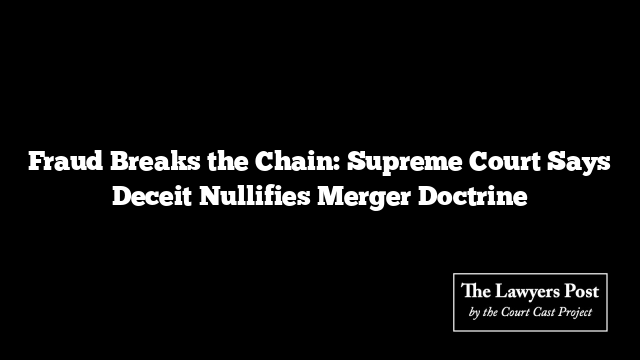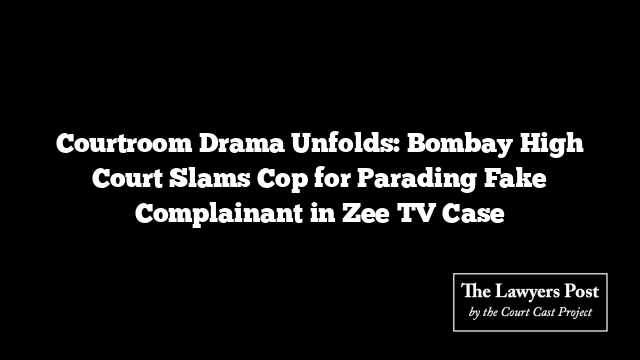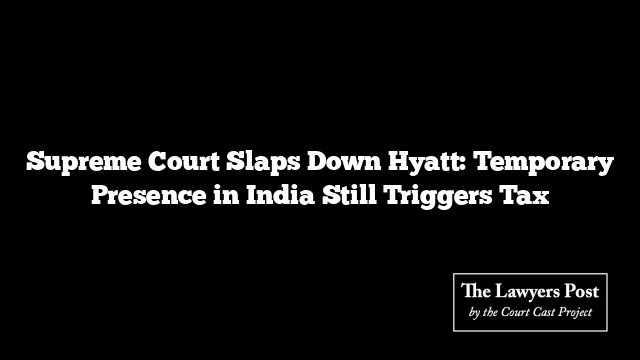In a ruling that slices through legal orthodoxy with surgical precision, the Supreme Court has clarified that the doctrine of merger—a principle where a lower court’s decision is absorbed into a superior court’s ruling—cannot be used to shield judgments tainted by fraud.
At the heart of the dispute was a 2021 High Court decision that had favoured one Reddy, allegedly obtained by hiding crucial facts. That ruling later received a nod from the Supreme Court in 2022. But another party, Vishnu, not included in the original proceedings, came knocking with a serious allegation: the entire foundation of the judgment was built on deception.
The legal standoff turned on this question—could Vishnu appeal the original High Court order, or was he forever barred due to the merger of that order into the Supreme Court’s subsequent affirmation?
Reddy’s camp invoked the doctrine of merger, arguing that the Supreme Court’s 2022 decision rendered any challenge to the High Court’s judgment moot. But the bench—Justices Surya Kant, Dipankar Datta, and Ujjal Bhuyan—saw through the haze.
Fraud, they said, cuts through merger like a knife through paper. Justice Datta, writing for the Court, held that a decision infected by fraud cannot enjoy the protective cloak of merger. Since the High Court’s ruling had not been made on true merits but instead on suppressed material facts, the usual rules simply did not apply.
The Court didn’t stop there. It mapped out five critical exceptions to the merger doctrine—scenarios where appeal routes may remain open:
- When extraordinary circumstances demand a hearing, lest justice be stifled.
- When public interest questions arise that weren’t addressed in the original appeal.
- When allowing the earlier ruling to stand would mean punishing a party for the system’s own lapse.
- When the earlier ruling was won through deception—as in this very case.
- When irreversible harm to the public interest would result from letting a fraudulently obtained ruling persist.
With that, the Supreme Court tossed out the 2021 High Court ruling and its own 2022 endorsement, sending the case back for a clean hearing—this time with all relevant parties, including Vishnu and Sudhakar, properly included.
Case Title: Vishnu Vardhan @ Vishnu Pradhan v. State of Uttar Pradesh & Others (and connected matters)
The message was unambiguous: fraud voids what law alone cannot—because justice cannot be built on concealment.





